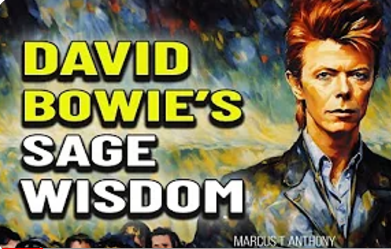Charles Darwin, as we all know, was a great scientist who meticulously laid bare the myth of a purposeful hand in evolution, instead revealing that blind chance and survival of the fittest are what lie behind the evolution of species. He was vehemently opposed to religious and spiritual thought, instead insisting upon the empirical investigation of nature as the only means to truly identify the way our world works. In short, the selfish gene hypothesis famously posited by Richard Dawkins has much to thank Darwin for, in establishing the ground rules upon which nature produces new variations in plant and animal life.
Yet according to research put forward by veteran psychologist David Loye, this representation of Darwin is only partially correct. Indeed it is dangerously misleading. It fails to mention the shocking truth that Darwin was no advocate of blind chance as the key factor underpinning natural selection. Although the beginnings of genetic theory were still half a century away in 1858 when The Origin of Species was published, Loye’s research suggests that Darwin would not have been particularly inclined towards Dawkin’s selfish gene hypothesis and neo-Darwinism in general. Conversely, Loye writes in his latest book The Integral Darwin: The Revolutionary Rest of the Story and the Theory of Evolution that Darwin’s work and thinking actually presaged the mid-twentieth century arrival of systems theory, self-organising process theory, and a more progressive, spiritually-inclined psychology.
The case for a softer Darwin
Some years ago Loye’s investigative mind took to purusing Dawin’s The Descent of Man, which was published over a decade after The Origin of Species. To his astonishment, the Princeton psychologist discovered that Darwin had only used the term “survival of the fittest” twice in the entire huge volume, and wrote only six times of “selfishness.” Conversely he wrote about “moral sensitivity” no less than ninety-two times and “love” ninety-five times.
Loye’s case for depicting Darwin as a far more eclectic and even spiritually-inclined individual is strong. The quotes he takes from Darwin’s own works and diaries cannot be simply dismissed as aberrations. For this we should certainly thank the author.
Consider the following, from the conclusion of The Descent of Man.
Important as the struggle for existence has been and even still is, yet as far as the highest part of man’s nature is concerned there are other agencies more important… For the moral qualities are advanced, either directly or indirectly, much more through the effects of habit, he reasoning powers, instruction, religion, &c, than through natural selection.
It is difficult to argue that Darwin here is talking about cultural evolution. Yes, that despised word amongst empiricists, “culture.”
Or reflect upon this gem which Loye quotes.
Admitting for a moment that virtuous tendencies are inherited, it appears probable, at least in such cases as chastity, temperance, humanity to animals, &c., that they become first impressed on the mental organisation through habit, instruction and example, continued during several generations in the same family, and in a quite subordinate degree, or not at all, by the individuals possessing such virtues having succeeded best in the struggle for life.
This quote appears to suggest that mental characteristics can be passed down from generation to generation. This is not much like the selfish gene at all. Indeed, here is a Darwin who believed that “love sympathy and self-command (can) become strengthened by habit.”
Further, Loye finds evidence in The Descent of Man that Darwin was favourably predisposed to spiritual reflection.
… A belief in all-pervading, spiritual agencies seems to be universal; and apparently follows from a considerable advance in man’s reason, and from a still greater advance in his faculties of imagination, curiosity and wonder.
Again, we see a Darwin at great odds with the dominant culture of modern science, one who saw the spiritual as an “advance” in consciousness. Loye’s research suggests that the mental realm was just as important to Darwin’s evolutionary model as was the physical. Later in the March of scientific “progress” all trace the mental was to be largely excluded from the modernist worldview. Darwin’s story suffered a similar fate, with reference to such ideas excluded from the popular narrative, a link that Loye highlights often.
How it came to pass
What intrigues Loye is how Darwin has come to be so badly misrepresented in modern science. Why is it that we have only been told of half the story? How for example, did we get from Darwin’s initial theory – which was moderated by deeper philosophical and arguably spiritual ideals – to the far end of today’s neoDarwinism. The latter is epitomised by philosopher and neo-Darwinist Daniel Dennet’s claiming that ALL things in the universe operate according to processes which strongly mirror the mechanistic laws of a rigid natural selection? The reason for this perversion, according to Loye, lies in the mindboggling power of paradigm blindness.
Today, Neo-Darwinism has come to dominate biology, and in turn neuroscience and psychology have become handmaidens to its reductionism – a development that Freud foresaw and feared in the first half of the twentieth century. Yet there is evidence that the hold of the mechanistic paradigm is loosening. Such developments as the missing heritability problem in genetics, neurplasticity, and the evidence for the non-local properties of consciousness pose a genuine challenge to the machine cosmos worldview.
Darwin was no Darwinist, and why it matters
Yet what of Loye’s case for Darwin’s thinking being a precursor to more recent systems and chaos theory? The correlations are also clear, though some may find the link overstated.
Loye sees a far more accurate, humane, sustainable and ultimately accurate depiction of life and cosmos in the systems theories epitomised by the work of such thinkers as thermodynamicist Ilya Prigogine, brain scientist Karl Probram, integral philosopher Ken Wilber, feminist writer Rianne Eisler, systems theorist Ervin Laszlo and psychologist Mihaly Csikszentmihalyi. Indeed, the first part of the book details how David Loye was invited to join Ervin Laslo’s General Evolution research group in Budapest. Ultmately Loye would develop the Darwin Project Group, with the express goal of bringing Darwin’s Lost Theory to the world.
It is not Loye’s intention to deny the role of natural selection on nature. Nor does he deny many of the aspects of Dawin’s theory which are consistent with Neo-Darwinism. Yet Loye is adamant that Darwin himself was no “Darwinist” in the popular conception of the term.
But does all this really matter? Is it really that important that Darwin’s conception of natural selection and of nature in general was far more eclectic than mainstream genetic theory today and that we have underplayed the diffrences?
Yes, it is important, says Loye. Very important. The selfish gene theory and mechanistic biology in general have created a very selective and deeply distorted view of the cosmos in which we live. Such delimited thinking simply ignores the data which does not fit its map of reality. It therefore does not represent the full human story. At a social and cultural level it has contributed to the the often disconnected and morally vapid culture of modern developed economies. This distorted map and culture, argues Loye, are what lie behind many of the great problems of the world, including disconnection from nature, environmental recklessness, rabid consumerism and much human conflict. He also sees power-hungry conservative interests as having taken the neo-Darwinnian discourse to justify their own selfish social agendas.Therefore, the reinstatement of the full story of Darwin would represent an important step in acknowledging where we have gone wrong. From that point we could begin the long task of finding a more accurate and empowering narrative to drive the human species into the future.
In the end, Loye’s research shows us that the stories we tell about our heroes – including those from science, philosophy and education – can be heavily distorted by the prevailing thinking of those gazing upon the past. Examples from the history of science abound. Socrates was no mere critical thinker, believing in the spiritually transformative power of knowledge. Newton started out as a theologian and remained mired in theology all his life (Darwin, too, excelled at university in Divinity Studies). Freud was sympathetic to research into ESP, but afraid to go public about it. These men were not the severe rationalists that are often depicted in modern tomes, each possessing ideas and ideals that were either mystical, religious, spiritual or Romantic in some sense.
If David Loye is right, Charles Darwin may one day be remembered as one of the men who healed the split in the modern mind between the scientific/rational, and the spiritual/intuitive. That would be some irony.
David Loye’s website is www.davidloye.com.
Marcus T Anthony, PhD is the author of ten books about human awakening, including Discover Your Soul Template. He is also a life coach and teacher of profound intuition.







1 thought on “The Shocking Truth About Charles Darwin”
If Darwin was on the right path he wouldn’t have ended up looking so ugly- after all he was reasonable looking as a young man! He was clearly a depressed man in his later years and he has his ideas about life to thank for it!
When we are in tune with truth we enhance our natural good looks. After all, the path of truth is the path of the heart, and the path of the heart beautifies the features and makes us happy! So I would dump Darwin as a role model if I was someone with a modicum of spiritual attainment! His ideas won’t help you and neither will those of Richard Dawkins. Leave them to their materialist minions who are (happily) going to hell anyway!